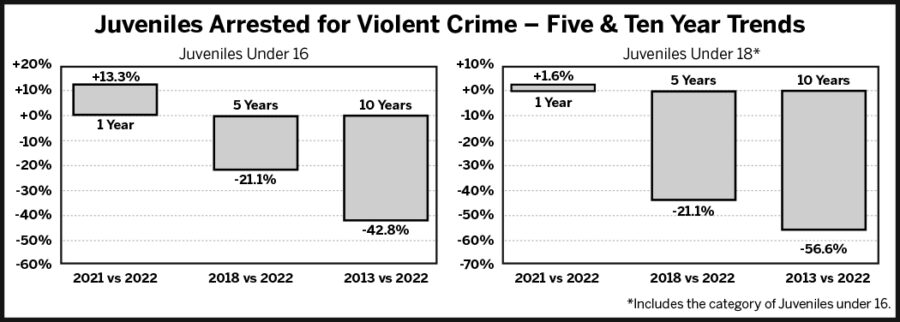
RALEIGH — A bill filed by lawmakers would alter “Raise the Age” legislation by making certain charges and court proceedings criteria for juveniles to be tried in Superior Court instead of juvenile court.
House Bill 834, titled “Juvenile Justice Modifications,” passed the Senate on May 15 and is awaiting review in the House Rules, Operations and Calendar Committee. The bill’s primary sponsors are Reps. Ted Davis (R-New Hanover) and Neal Jackson (R-Randolph).
The key change proposed in Section 1 of the bill modifies the definition of “delinquent juvenile,” specifically for 16- and 17-year-olds. Currently, juveniles in that age range who commit acts that would be criminal offenses for adults have their cases start in juvenile court.
However, Section 1 would exclude certain felony offenses from that “delinquent juvenile” definition for 16- and 17-year-olds, excluding any offense that would be classified as a Class A, B1, B2, C, D or E felony if committed by an adult.
The bill would make it so a 16- or 17-year-old charged with any such felony-level offense would no longer fall under the jurisdiction of the juvenile court system. Instead, their cases would originate and be handled entirely in the adult criminal court (Superior Court) system.
Jackson told North State Journal the only criticism of the bill was that the shift for serious juvenile offenses going directly to Superior Court would be detrimental to minority teens.
“If you do the crime, you have to do the time, and these kids are committing serious offenses,” said Jackson. “And it doesn’t matter if you’re 17 and a half or are 18 and a day, you need to be punished for your crime.”
Jackson later added there have been “numerous situations” of adults coercing minors to commit a crime, telling the minor they will get a lesser sentence. He said the bill would address that issue as well.
The bill also creates a new process for removing certain cases from Superior Court back to juvenile court based on offense severity, age and agreement between prosecutors and defense.
For Class A-E felonies committed by 16-17-year-olds that are in Superior Court, both the prosecutor and defense can jointly motion before jury selection to have the case moved to juvenile court. If moved, the Superior Court must expunge the criminal charges and record.
Jackson said the district attorneys in the counties he represents asked for the changes.
“My DAs requested it is kind of the reason behind it, and really just the whole transfer requirement gets kind of burdensome,” said Jackson. “And so the most serious offenses just get taken directly to Superior Court, where it belongs.”
The North Carolina Conference of District Attorneys, a group that advocates for the state’s elected local prosecutors and district attorneys, also sought the transfer changes.
The most recent crime statistics from the North Carolina State Bureau of Investigation (NCSBI) are from 2022.
The Crime Index report contains a subsection on juvenile offenses that shows a 2% increase in violent crimes and a 10% increase in property crimes committed by individuals under the age of 18 between 2021 and 2022.
Among violent crimes by juveniles, murder arrests went from 46 in 2021 to 60 in 2022, a 30% increase. Adults arrested for murder during the same two years dropped 21%.
 Trends for violent crime arrests for juveniles under 16 and under 18 both show increases between 2021 and 2022; 13.3% and 1.6%, respectively.
Trends for violent crime arrests for juveniles under 16 and under 18 both show increases between 2021 and 2022; 13.3% and 1.6%, respectively.
Five-year (2018-2022) and 10-year (2013-2022) trends for juvenile violent crime for both age ranges show decreases dropped and being upended by the 2021-22 years. Ten- and five-year trends for those under 18 reveal a decrease of 56.6% and 45%, respectively. For those 16 and under, the 10-year decrease was 42.8% and the five-year was 21.1%.
While the NCSBI has not yet posted data beyond 2022, the North Carolina Department of Public Safety numbers for 2023 showed juveniles between the ages of 16 and 17 had been charged with murder in 66 cases. Additionally, there were 28 murder case charges for juveniles aged 13-15 years old.
Based on news reports, there have been at least 14 juveniles either sought by police or charged for murder or attempted murder between January and May of this year. Most of those charged were either 16 or 17 years old but included several 15-year-olds and one 14-year-old. Most of the murder charges involved the death of another teen.
January 2024
- 16-year-old charged with murder of an adult in Mecklenburg County
- 17-year-old charged with murder of an adult in Duplin County
February 2024
- 14-year-old charged with murder of a 21-year-old following a shooting in Wake County
- 16-year-old and 17-year-old charged with murder of a 17-year-old in Mecklenburg County
March 2024
- 17-year-old was charged with the murder of another 17-year-old in Robeson County
- 16-year-old was charged with the murder of a 17-year-old in Mecklenburg County
- 17-year-old was charged with murder in the death of a mother of three in Wake County
- 17-year-old was charged with the murder of another 17-year-old in Mecklenburg County
April 2024
- 17-year-old was charged with murder of a 21-year-old male in Mecklenburg County
May 2024
- Two 15-year-olds and a 17-year-old charged with murder during a home invasion in Iredell County
- 16-year-old charged with attempted murder of a 13-year-old in Iredell County
- 18-year-old sought for the April murder of a 17-year-old in Mecklenburg County



